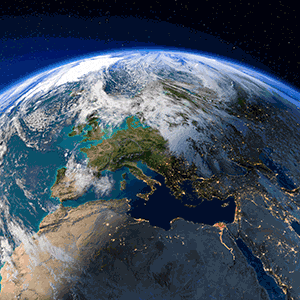Why is culture important in foreign politics ?
Marietje Schaake : Culture or culture actions are used to foster democratization participation, development, education, human rights and freedom of expression. Culture is increasingly recognized as a vehicle to accomplish other goals that are more value oriented.
We see exchanges between students, teachers, journalists, artists and we see elements of development money being used for culture and partnerships with third countries.
This report makes suggestions on how these policies can be used more coherently and how we can make a more strategic coordination between the programmes. Not only because I believe it’s a good idea, but because it has already been said in the Lisbon Treaty and the UNESCO convention that culture should be mainstreamed and be an element of every programme.
Tweet your MEP - Connecting citizens and MEP. Have your say on European affairs by sending a question or a message to your MEP. Contact Marietje Schaake via twitter on our new website Tweet your MEP.
In the report you propose that there should be a cultural administrator at each EU representation in the world. What would be the job description for this person ?
M.S. : Yes, the report proposes one representative in each European representation that deals with the coordination of cultural programmes. This person would know about all the cultural actions and programmes that the EU has and should inform people about it. This can also be done via internet. It is not just about travelling to places and doing on the ground programmes. Actually I think we need to introduce a new strategy on digital diplomacy.
You mention that “new media” has a crucial part to play in cultural diplomacy…
M.S. : People interact increasingly over the internet. New media can help to foster values such as freedom of expression, access to information and democratic participation. It is now possible to break through censorship and taboos and it’s really important to engage people in democracy and human rights through these new media. This is also a part of the cultural programmes.
Bloggers are basically the journalists of today and people are being imprisoned for the blogs they write or the way they use new media. It’s just the reality in the new world - a reality that has not really been factored into the policies yet, and this would be a good moment to do so.
How can Europe defend and monitor the freedom of expression over the internet, and do you think that internet - as we know it today - can survive after the recent Wikileaks’ incidents ?
M.S. : It is very important that Europe stands for a free and open internet. It’s important for the freedom of expression and it’s important for democratic participation.
The Wikileaks’ cases are a symptom of how the internet and technology changes democracy. What we should do is to rethink diplomacy, democracy and governance and see how we can make it much more open. Services like Wikileaks were developed in a climate of mistrust of government.
Open government needs to be the standard and secrecy needs to be the exception. So I hope that this moment will be used to create more openness. I hope that trust can be rebuilt effectively between government politicians and people.
Your report also mentions the concept of “Brand Europe” . How do you think we can do this ? We are many member states, we have different cultures. How can we sell ourselves as a one cultural brand ?
M.S. : This diversity is precisely what makes Europe so attractive. There is no desire to blend this together, it would not even be possible and it would kill precisely what makes Europe strong. Diversity is an image as well. Brand Europe is just to switch the thinking in terms of “Europe in the World” instead of differences between member states. It’s important to think about our position in the worldwide economy because otherwise we miss opportunities and we risk becoming less relevant on the global stage even though we have the by far most attractive cultural landscape.
Find out more :
News and information on the European Parliament - European Parliament website
Marietje Schaake’s personal website
A Europe of culture - Touteleurope.eu
Short video presentation of Tweet your MEP - Touteleurope.eu




 Actualité
Actualité 


 Infographies
Infographies  Synthèse
Synthèse  Droits et démarches
Droits et démarches  Interviews et débats
Interviews et débats  Revue de presse
Revue de presse  Podcasts
Podcasts